In 2013, our “African Cries Out” team started building schools and hospitals, as well as helping the poor and young girls in West Africa. Africa’s high sandy sky has attracted many of our heroes to dedicate themselves to it; the sunny wilderness of Senegal has also trained our youth team. On March 10th of this year, our “Africa Cries Out” team took another group of teenagers to West Africa. The children who went with us ten years ago have now grown up. Many of them have been forged by fire and blood, becoming new people. In recent years, many Chinese children have also joined our youth team. They expressed their love and have made their own efforts to turn the world into a better place.
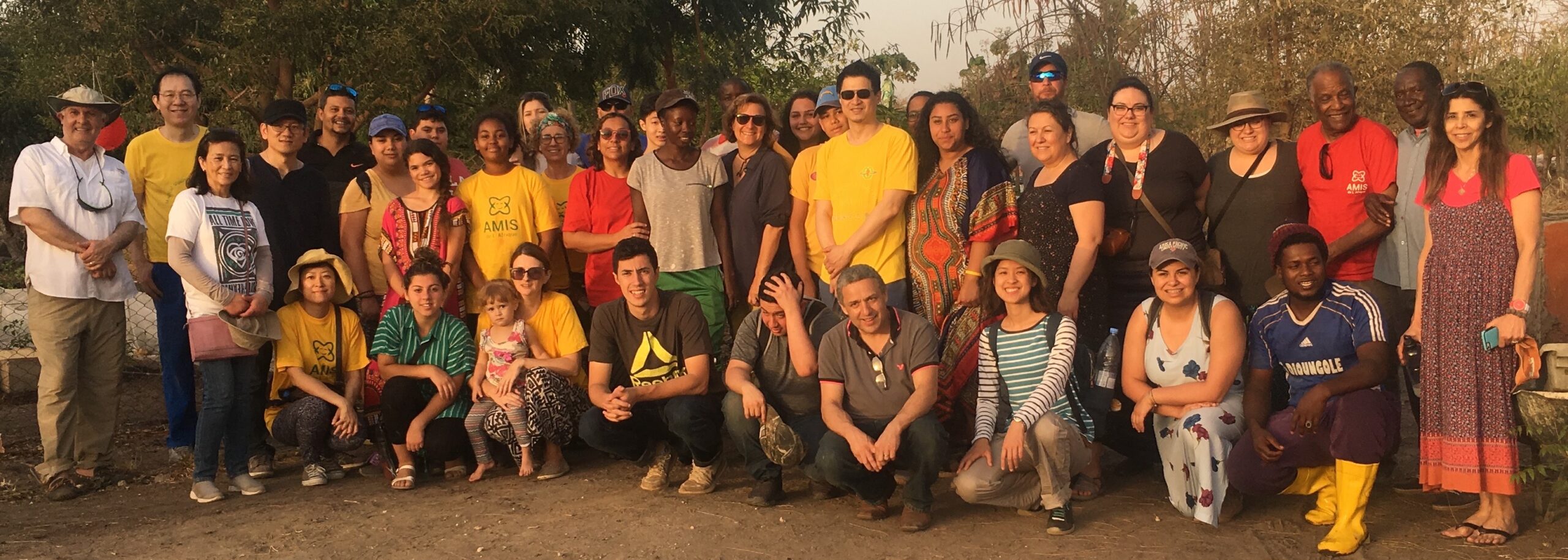
Picture 1, The 2019 team included more than a dozen teenagers
We often tell the children in our team to compare themselves with the children that they see with their own eyes. Only by observing can we feel and life can be sublimated.
- Compared to the children in Africa, our teens have witnessed first-hand the many shocking victims and unforgettably corrupt customs.
- Girls Genital Mutilation
Female Genital Mutilation has been an immoral practice in Africa for thousands of years to protect the purity of women and prevent them from being polluted by men. Beginning from the first week of birth, girls have their hair shaved along with several wounds cut on their heads with a knife. Afterwards, every few years, cuts were made on their heads again. By the time they reach puberty, a ceremony only women can participate in is held. Adult women wearing masks and singing ancient songs would grab the hands and feet on the girl. Then, an old woman with no medical training whatsoever, would only use a blade, without any anesthesia or sterilization, to cut the major and minor labia as well as the clitoris. The vagina would be sutured with twine, leaving only a small opening to allow menstrual blood to flow out. Many women are therefore unable to urinate after surgery; urethra and vagina caused fistula, infection and fever, and mortality is high. The severe pain terrifies all girls, but the social conventions are like a huge fan, pushing them into the abyss of suffering.
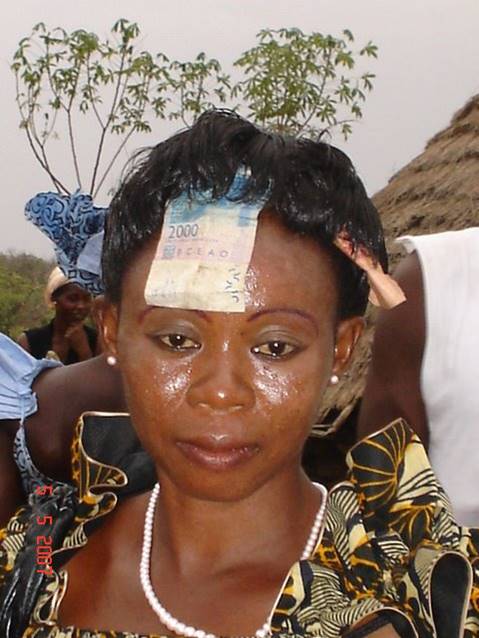
Picture 2, A just-circumcised girl that had endured great pain. Her family sent some banknotes as a congratulatory gift. Our children cannot imagine such torture.
- Boys Become Beggars
Marabout is an Islamic educational institution distributed across West African countries. Historically, many Islamic teachers and religious leaders were called Marabout, belonging to a branch of the Islamic Brotherhood. In Senegal, with the average life expectancy of 50 years, women have an average of 5 children, and the infant mortality rate is 50%. Because half of the children in most families can’t survive, the Malibu people said, “Half of your children are going to die anyway, so why don’t you give them to us?” The children are deceived into “free parenting and education.” The vast majority of poor families are uneasy about handing over girls to outsiders, so they will only hand over boys to them.
As soon as these poor children entered Malibu, each child must hand over 200 CFA francs, or 40 cents, a day. Adults in Senegal can only earn 2,000 CFA francs a day. The Koran stipulates that adults must give 1/10 of their income to help the poor every day. In Senegal alone, there are about 50,000 children in Malibu begging for money on the street, and Malibu has one million CFA francs every day. Over time, they accumulated huge wealth, and have champerty, are robbing people’s wealth, forcing their children to join Islam, and use money and religion to influence and manipulate the country.
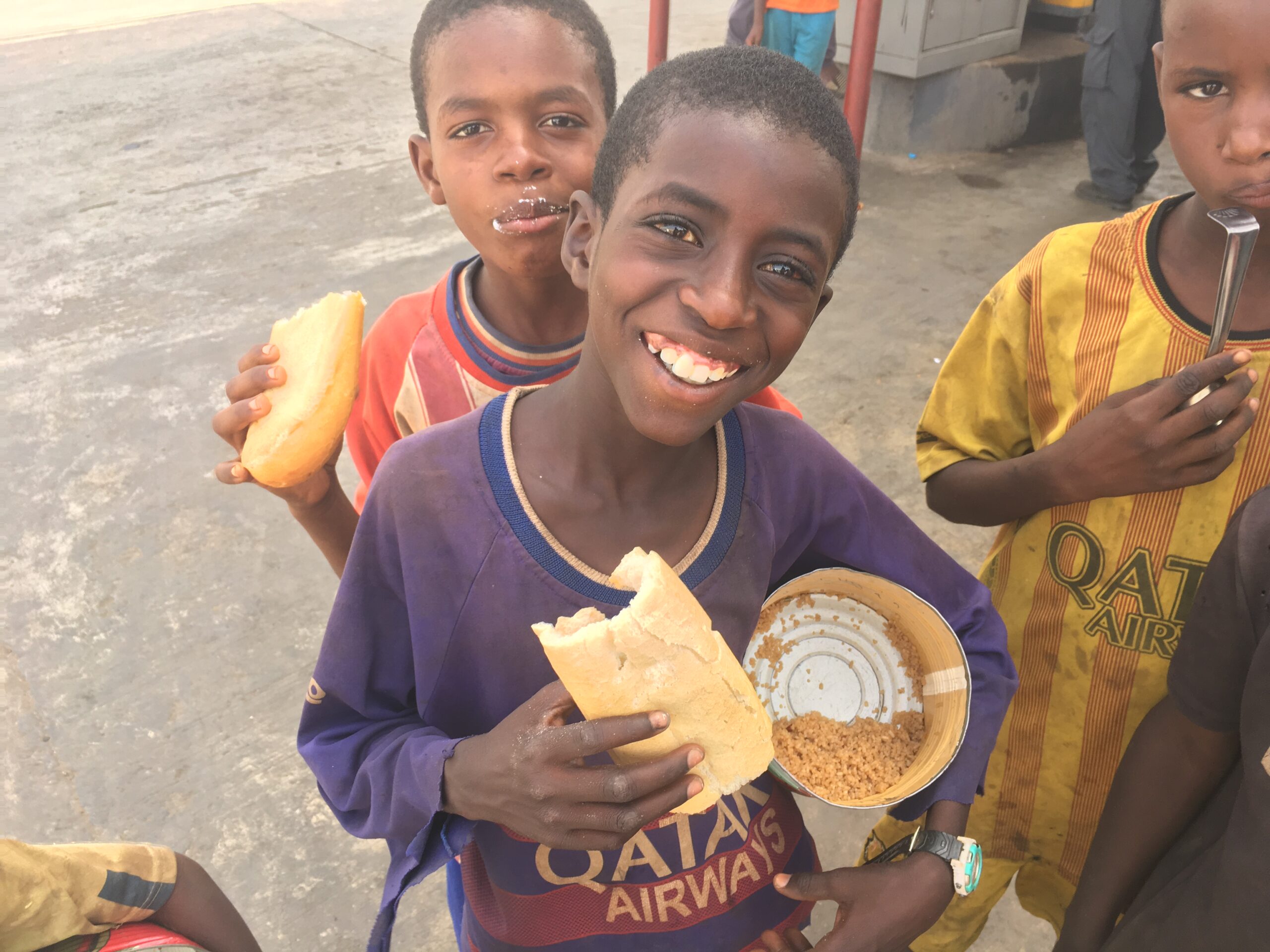
Picture 3, The African children smiled happily when they received the bread from us. Our kids can’t imagine a situation where they can’t get enough to eat.
Seeing it with our own eyes and feeling it with our own hands, the childhood of the African children is like a mirror that wakes our children up from their dreams.
- Comparison to missionary children
Many missionaries in our team were born in middle-class families. They dressed like our children and did not worry about food and clothing, but instead, they dedicated their youth and their children to the African people. Our children were all shocked to see their great deeds.
- In May 1997, Pastor Anna left her parents and brothers and sisters and flew from Sao Paulo to Dhaka, the capital of Senegal. They were filled with longing and started a new life. The remote Senegalese province of Kentago is a place that modern people can’t even imagine living in. Every year, there is an eight-month dry season with bright sunshine, hot weather up to 145 degrees Fahrenheit is common, and the hut is sultry like a big steamer with nowhere to escape. During the rainy season, sewage is everywhere, and flies and mosquitoes that can devour people alive fill the skies. In order to save the lives of the patients in leprosy village, Anna lived in the village for ten years, and gave birth to her daughter, Emily. She was lonely and had no friends outside the leprosy village. The city is about 250 kilometers away. Once Emily saw a beautiful doll in the window and urged her mother to buy it. Pastor Anna wiped away tears and said, “Mom hasn’t received the salary from the mother church this month, so she has no money to buy ” She dragged the crying child and left the window. One day, Emily suddenly had a high fever, and there was no local doctor. Like pickles crowded on the local bus, Pastor Anna took her daughter and arrived at Dhaka in a span of a day and night. Finally, she got the special medicine, quinine, which saved her life. Emily stayed in the leprosy village until she was 6 years old before returning to Dhaka to go to school.
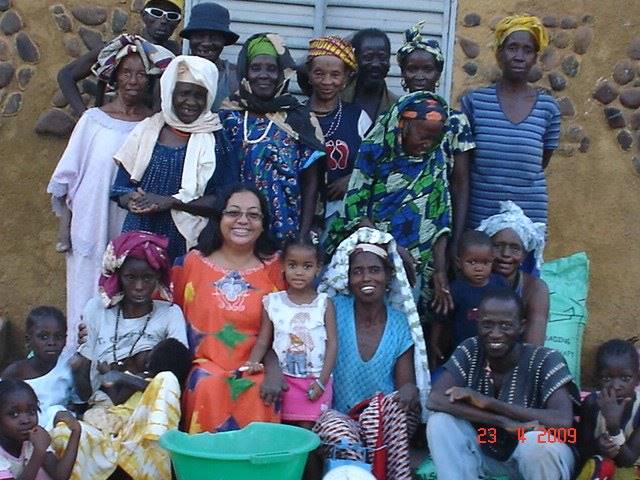
Picture 4, Anna and her daughter Emily in the leprosy village.
Due to infection, leprosy patients lost their fingers or arms, but they hugged Emily with their hands. After spending some time here, our children cannot imagine Emily growing to 6 years old in such an environment.
- Pastor Ida’s family
Pastor Ida used to be a nurse and lived a well-off life. After graduating university, Ruth worked in the Brazilian Ministry of Agriculture. She was young and beautiful with a bright future. In September 1995, shortly after Ida arrived in Guinea-Bissau, Ruth flew to Guinea-Bissau to marry him. One day, Ms. Isabelle, the team leader, found a 7-month-old girl named Mariama next to a garbage dump. The girl looked very skinny and was starving, and was covered with yellow water and emitted a strong odor. The Ida couple didn’t know the girl had skin disease, so they just took turns holding her. However soon, each of them became infected with this disease, with itching and yellow water all over the body. Only then did they know that it was scabies, caused by the human scabies mite (Sarcoptes scabiei var. hominis) that resides in the skin, feeding on dander and spreading my laying eggs in the skin. The most common symptoms are intense itching and red papules. This dirty and sick child was the first child in the orphanage they set up inadvertently. Later, their team took in nearly 200 orphans.
After two years in Bissau, they gave birth to their son Sam in 1997, and later their daughter Larissa. They didn’t have the money to hire private babysitters for their children, so they let their children grow up with the African orphans who were full of diseases and had no education. They didn’t move to Dhaka until the children were in middle school, when the children entered missionary school.
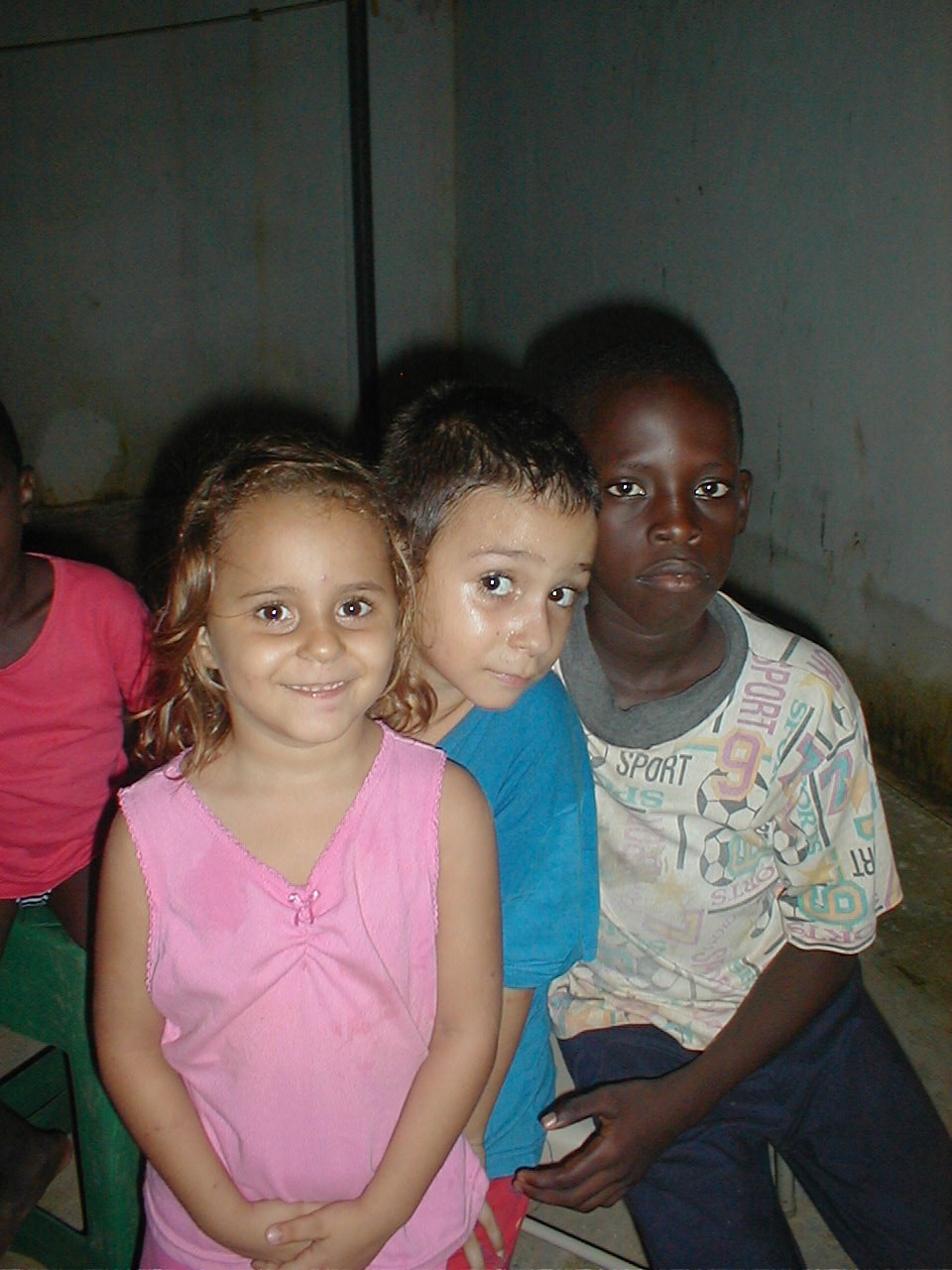
Picture 5, Sam and Larissa grew up in the orphanage.
- Pastor Anderson and Andrea
Pastor Anderson used to be a social worker, and his wife, Andrea, was a bank executive. They had a house and two cars in Sao Paulo and lived a leisurely youth. In 2012, they gave up everything to go to Guinea-Bissau and later moved to Senegal. Three years ago, they went to the leprosy village to take care of the leprosy villagers, taking over from Pastor Anna.

Figure 6. Pastor Anderson, Mrs. Andreza, and their daughter Elana were tanned by the hot sun in Africa
With different childhoods, the unforgettable suffering from Africa were like seeds planted in the hearts of our children. The stories of heroes make children think, what is a difficult childhood? Not running on a green field nor the lack of toys, but the real precarious days.
How do we train youth in the African Ministry?
People often ask, why are you taking these teenagers to Africa? How can they help you without professional knowledge? In fact, young people are our indispensable helpers, and their training is also one of our major jobs.
- Witness the great deeds of the heroes.
In our team, many heroes are willing to live in poverty and dedicate humbly. Providing children with the opportunity to see these heroes and the great deeds will significantly impact their lives later on.
- Anna served lepers in the leprosy village for ten years. She also rescued many girls who were subjected to cruel genital mutilation. She brought schools, medicines and ID cards to this isolated village, and turned it into modern society. (For details, please refer to World Daily Weekly, https://cms.wj411.com/preview/upload/information/781/201805/infor_detail_1869530.html)
- Faye, who graduated from the French Medical School as a doctor, was willing to serve the poor. He only charged 1.5 US dollars for each consultation, and his income was difficult to support his family. In 2017, he sacrificed his life for the lepers in the leprosy village. (The original text was published in World Weekly, and the following is reprinted, https://www.sohu.com/a/223099704_101096)
- Nicole, who gave up the superior conditions of the United States, has grown organic vegetables in Africa and trained African workers since 2003. They dedicate their lives to the poor in Africa, and they both directly and indirectly affect the lives of our children.
2. Do it yourself, and become a role mode
The conditions in Africa are very arduous. Whatever we ask our children to do, we must do it ourselves first to set an example and be a role model for the children. On March 14 this year, the Sun was scorching hot and the temperature reached 100 degrees Fahrenheit. We trekked through the jungle with our children to deliver food and medicines to a village that did not have any roads. When we arrived at the village, the children gave food to the poor. What they saw was the love of the adults, and the affection they gave to the local villagers after overcoming those difficulties. This kind of education will never be forgotten.

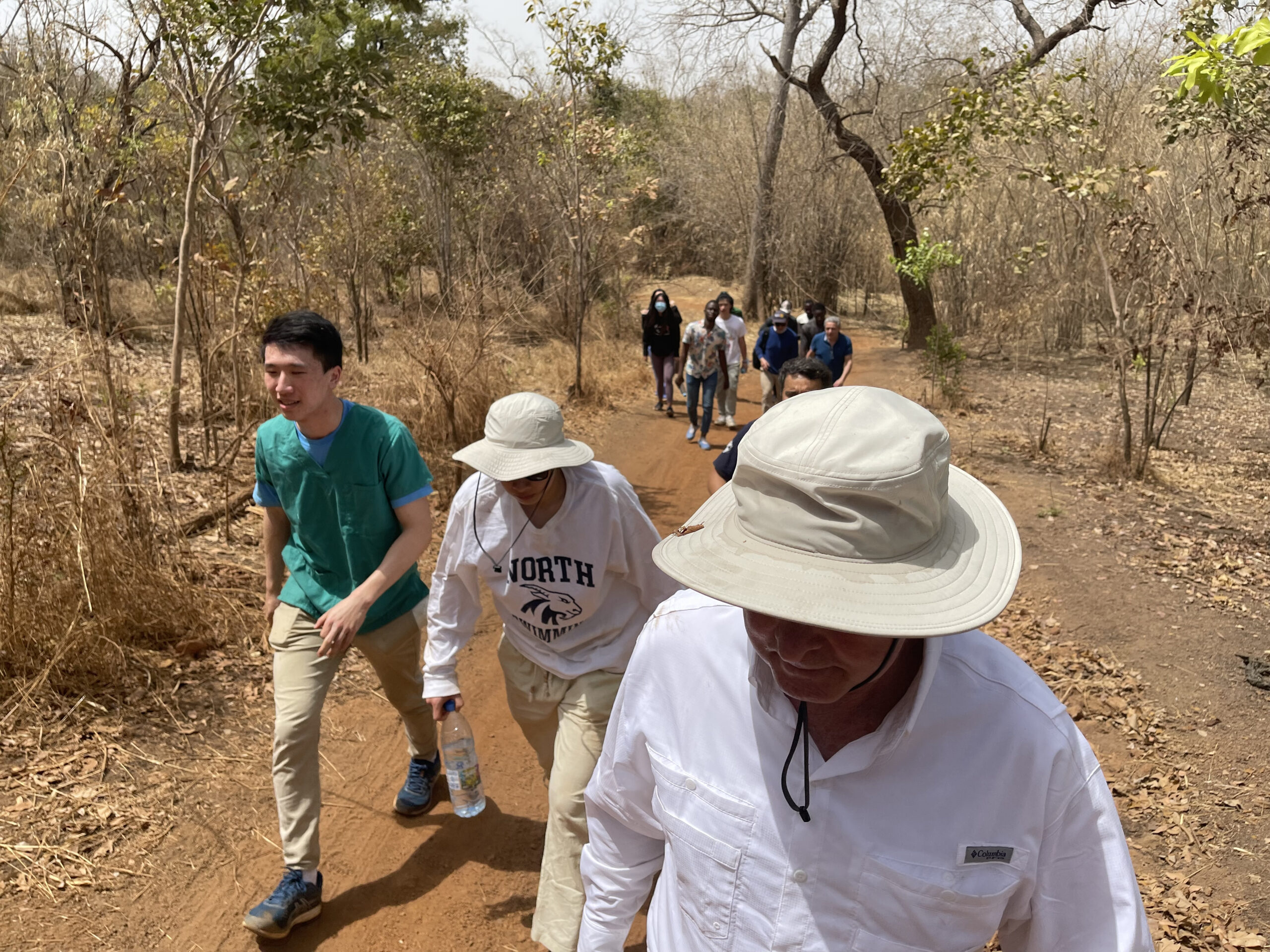
Figures 7 and 8, Walking in a jungle that seems to be on fire, everyone immediately feels their airways burning.
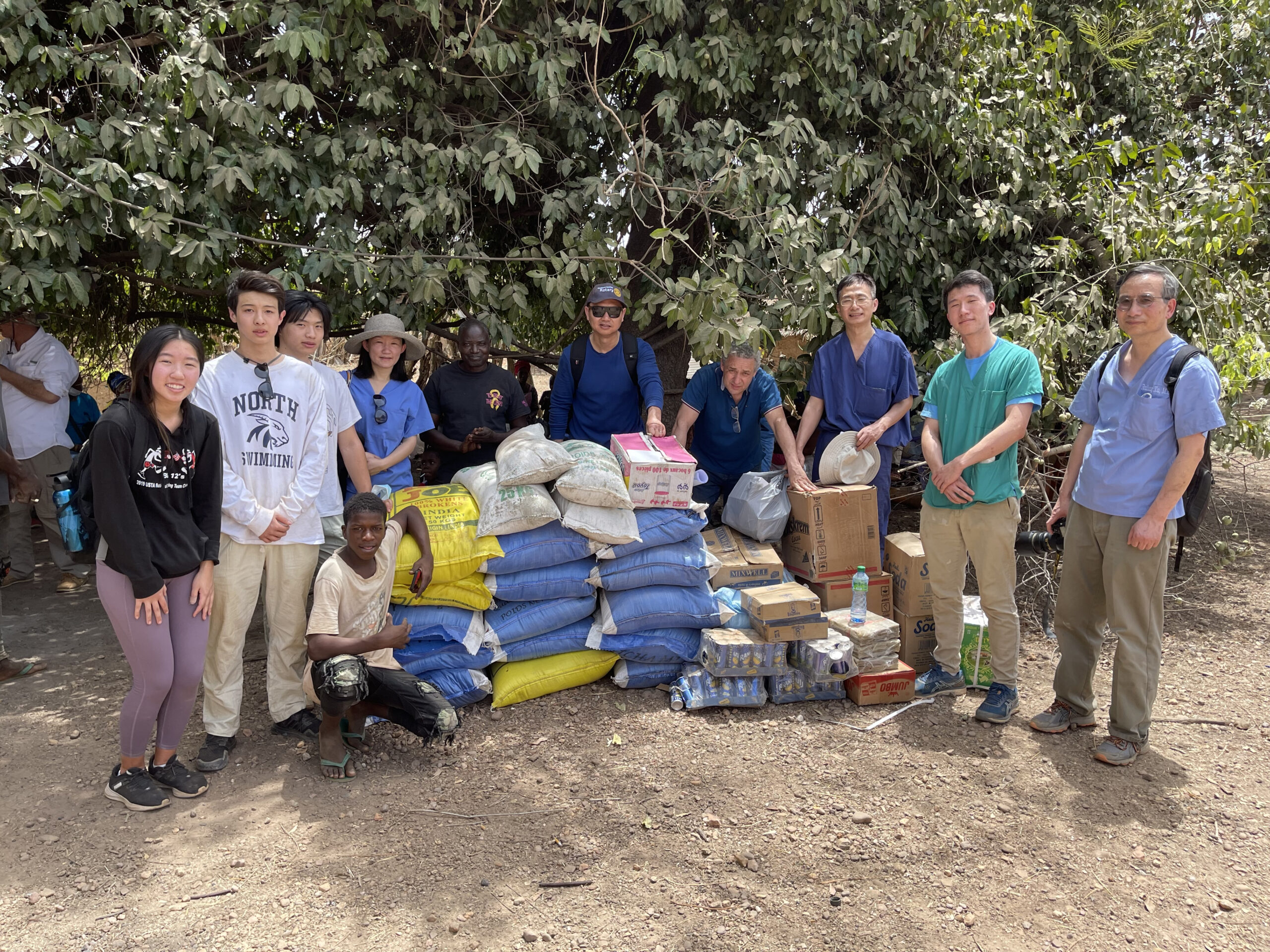
Picture 9, The food was delivered, and the children were very happy.
- Actively participate and witness poverty
Many of our children who grew up in North America eat delicacies and wear clothes from famous brands every day. Parents work hard, and the wealthy society provides them with a trouble-free youth. What is hunger and poverty? The average annual income per capita in Senegal is 1100 US dollars, with the average life expectancy as 50 years old, the average family having 5 children, and the infant mortality rate being 50%. To our children, the above figures are just a set of numbers, but when these children go to Africa, they will see with their own eyes. What they observed gave them a huge shock.
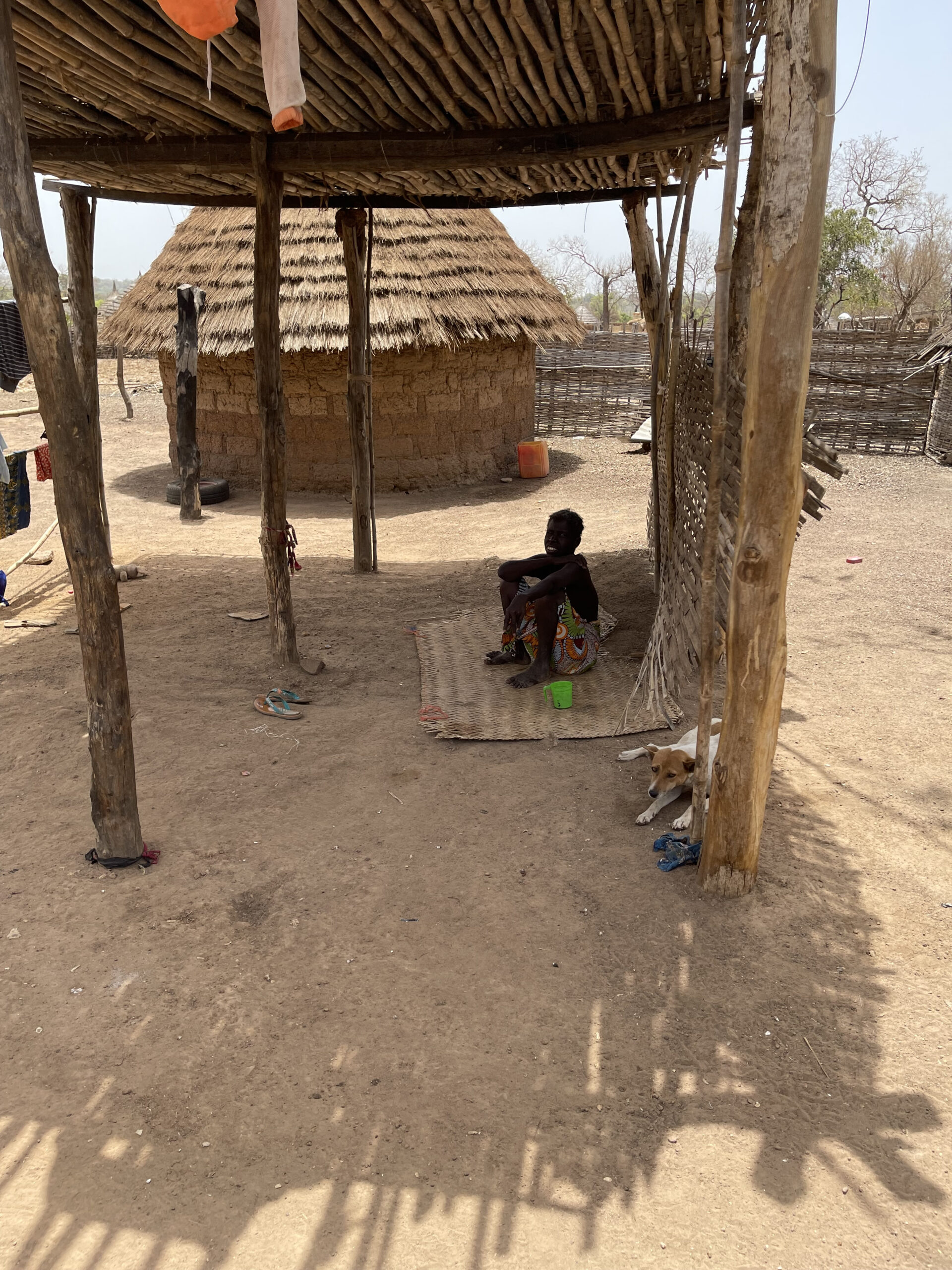
Figure 10. The chief’s home


Figures 11 and 12, In Jinjin village, the well that more than 100 people rely on to live has dried up.
- Strict discipline training
As we know, our children in the United States usually sleep late and get up after 11 am when they are not in school. But in Africa, they need to get up early every morning to prepare breakfast for the team. In the evening, they have to prepare the medicines needed for the next day’s outpatient clinic, and often work until 11:00 pm. Again they need to get up early the next morning to prepare breakfast. Such strict discipline and on-the-go team spirit make fundamental changes to our children.
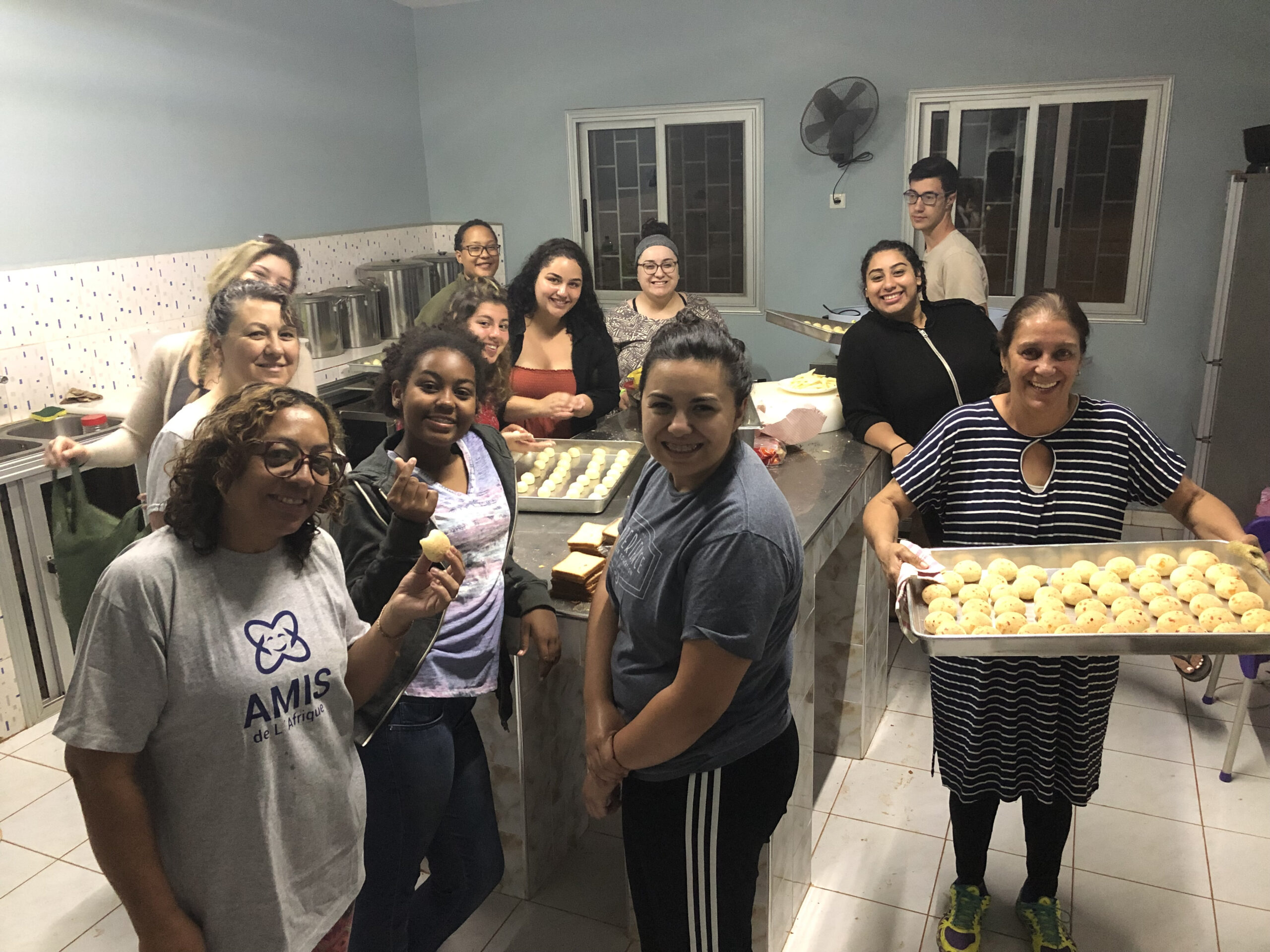
Figure 13, It was still dark outside, yet the youth team got up in the middle of the night to bake bread for us.
- Creative leadership training,
Before going to Africa, our children started thinking about how to help African children. For example, Joshua Li and Kenny Xu established an African club at their high school, collecting lots of shoes for African children. They brought those shoes to Africa so that the African children there could wear shoes to play soccer.
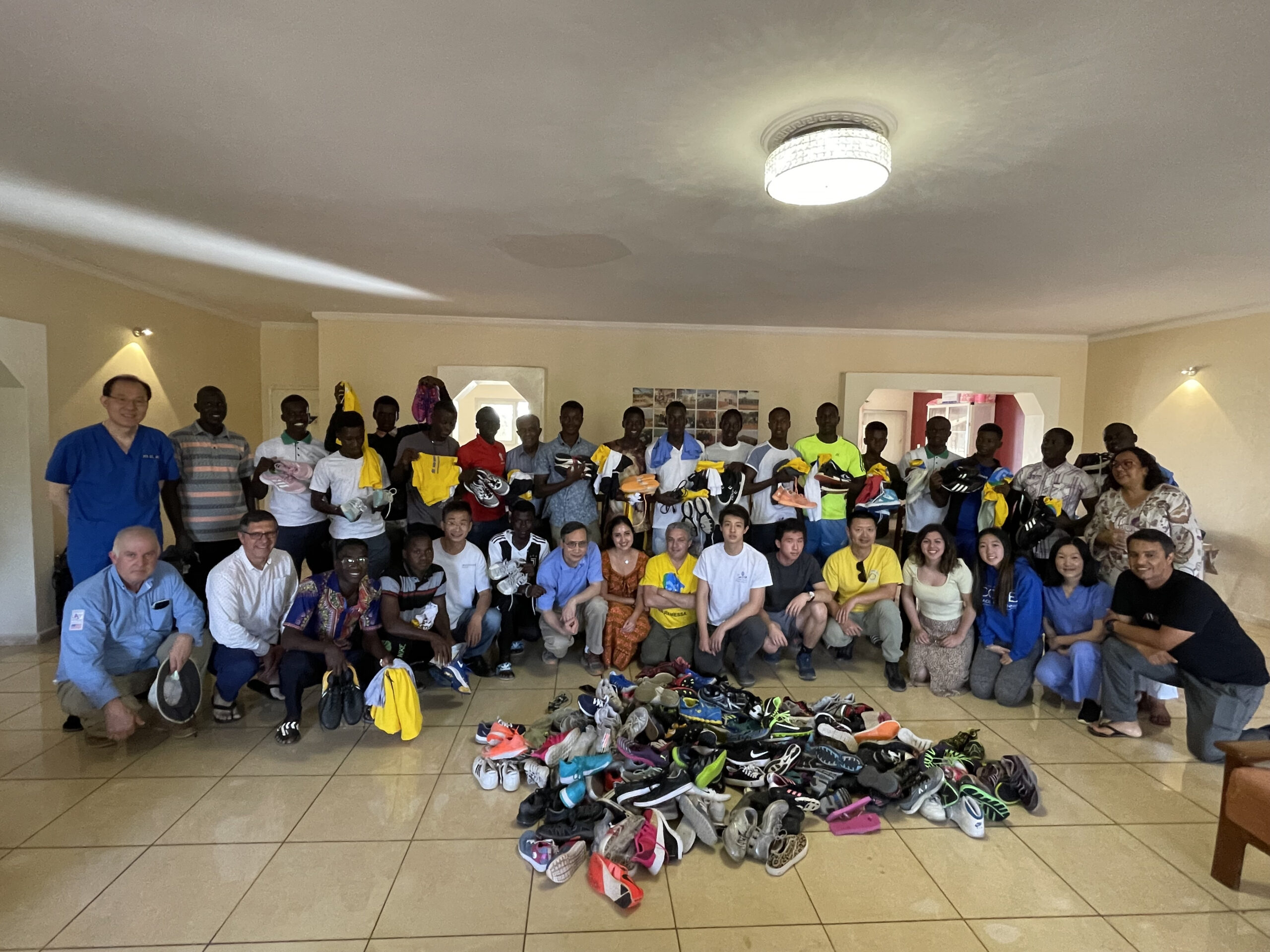
Figure 14. Sending shoes to African children
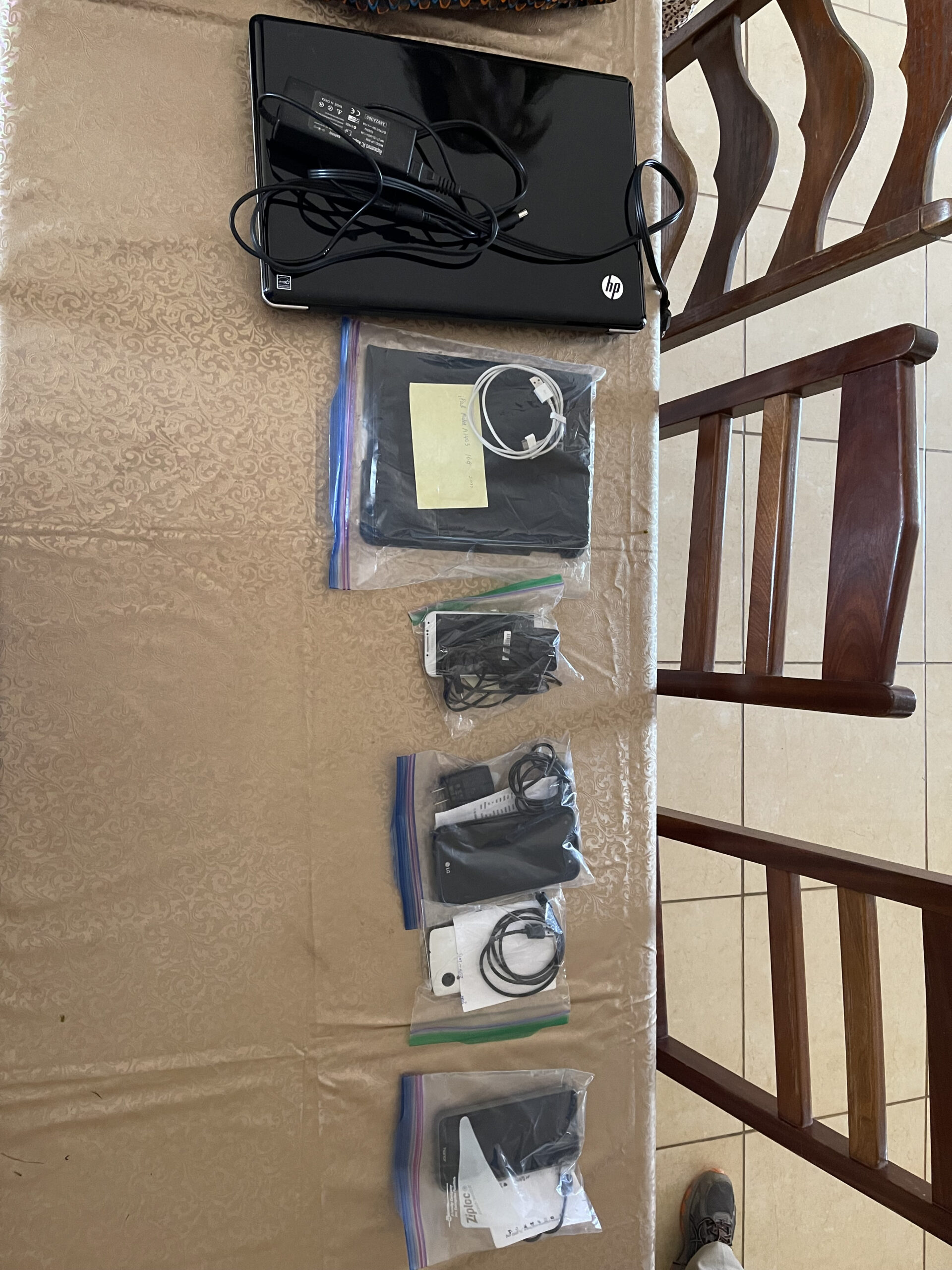
Figure 15. Teenagers collect reusable computers and mobile phones to give to the excelling students at the technical schools.
- Professional training
We have a lot of professionals, especially doctors. Taking strategies from other parents of teaching one’s children leads to particularly good results.
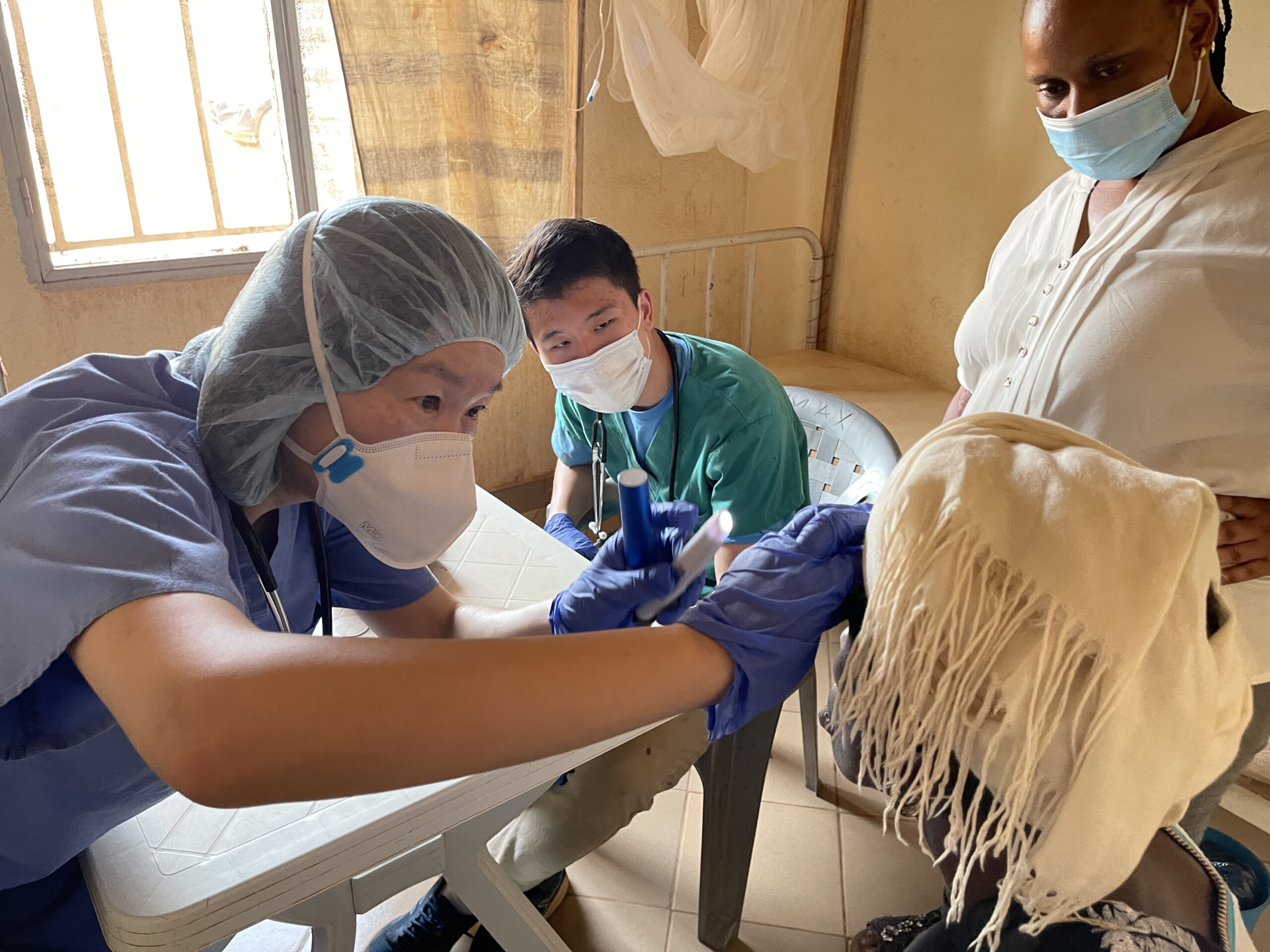
Picture 16, Dr. Huiyi Chen shows Kenneth how to check the eyes.
How do teenagers grow up?
Youth is inseparable from sunshine and rain, and the trip to Africa will influence them for a whole lifetime. Below introduces the journey the teens go through to grow up:
1. Marina, who grew up in Stamford, Connecticut, was a rebellious girl who used drugs, cut her wrists, fooled around, and caused endless trouble for her single In order to raise money for her drug addiction, she worked as a model in Manhattan for several years, and then got involved in an undeserved relationship. She fled the best art school in New York, New School-Parson, and went to Brazil. She claimed that she had done all the bad things that a girl could do. Joined us in Senegal in 2014 and again in 2017, she witnessed the sacrifice of Dr. Faye in the village of leprosy. The hero’s life changed her life. Since 2017, she has been serving African people in Mozambique with the support of “African Cries out”, helping the families of victims killed by ISIS, and assisting flood victims in Africa. She has experienced three kidnappings, and in the end she was out of danger. It has been more than five years now, and she still does not change her original goal and will never give up her service in Africa. World Weekly has reported her stories many times.

Figure 17, Marina in a Mozambique slum
2. Andrew is the son of Pastor Nelson. One day when Pastor Nelson was preaching on Sunday, someone told him to stop preaching and go home immediately. It turned out that the police found half pound of cocaine in Andrew’s bedroom, which made him become the biggest juvenile drug dealer in the local school. Once, Andrew was surrounded by a group of juveniles armed with swords from a gang and was about to be killed, as Andrew cut off their fortune. A woman suddenly shouted and saved Andrew, since the wife of the local drug dealer didn’t allow these kids to mess around at her door. For the sake of his son, Pastor Nelson pleaded guilty publicly in the church, and supervised Andrew’s drug rehabilitation. The experience of life and death made Andrew determined to change his life. Since then, Andrew has followed Pastor Nelson to Senegal seven times, Mozambique twice, and South Africa three times. The experience in Africa has made Andrew realize that caring for others is not enough, and that he must also learn knowledge. He is now a community college student, and will soon study business management in Connecticut State University. He is determined to use his knowledge to help Africa.
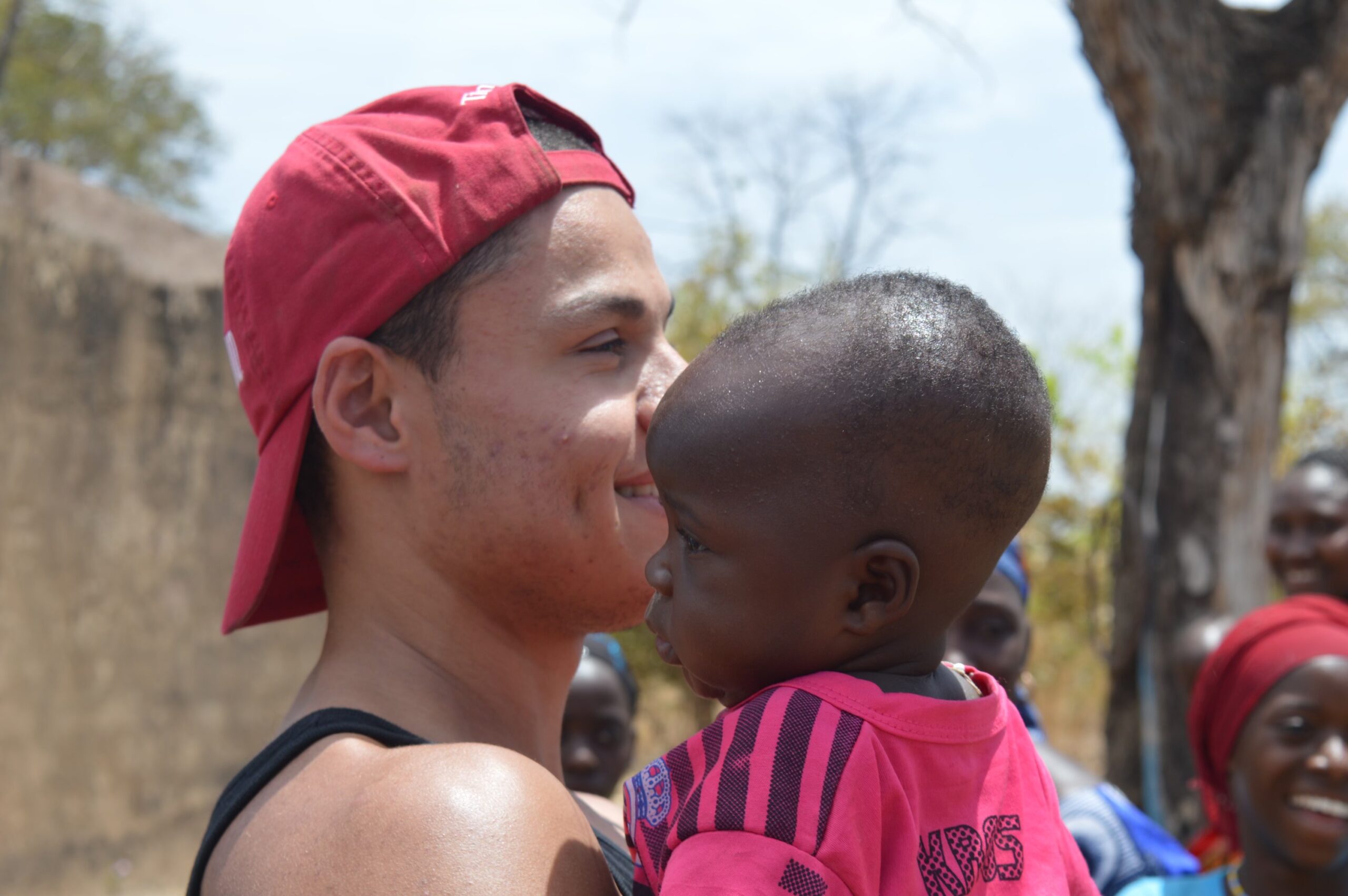
Figure 18, Andrew at the leprosy village
3. Esther was born in a very poor family. Her father was a taxi driver and her mother worked as a Since 2016, she has visited Senegal four times. I asked her why she went to Africa so many times. “I have so much, and I want to give it away,” she said, “When we go to Africa, we give and do not expect anything in return. That is the happiest thing for me.” She graduated from the University of Connecticut, and now works for a Connecticut state senator. She said, “I am engaged in politics now, so that I can change society in the future. My first step is to run for the head of a department in the Greenwich City Government. The experience in Africa has taught me that only by dedicating to society can we change it. Love never goes the wrong way.” I believe that she has established a correct outlook for life and the world. She will avoid detours and change herself so that acupuncture will be clean and unsullied. We sincerely wish the best for her career in politics, and that she will be a mature full-fledged politician with the experiences she got in Africa.

Picture 19, Esther (left) has a long and arduous way in politics. We pray for her and hope that she will always have a pure loving heart.
4. Stephanie, like Marina, is a graduate of The New School-Parson in New She was born in a poor family. She visited Senegal for three consecutive years. Now she works in a big company in advertising and marketing. I asked her why she still wants to go to Africa next year, she replied, “You only have one life. Only by giving your own life can you get a new life.”
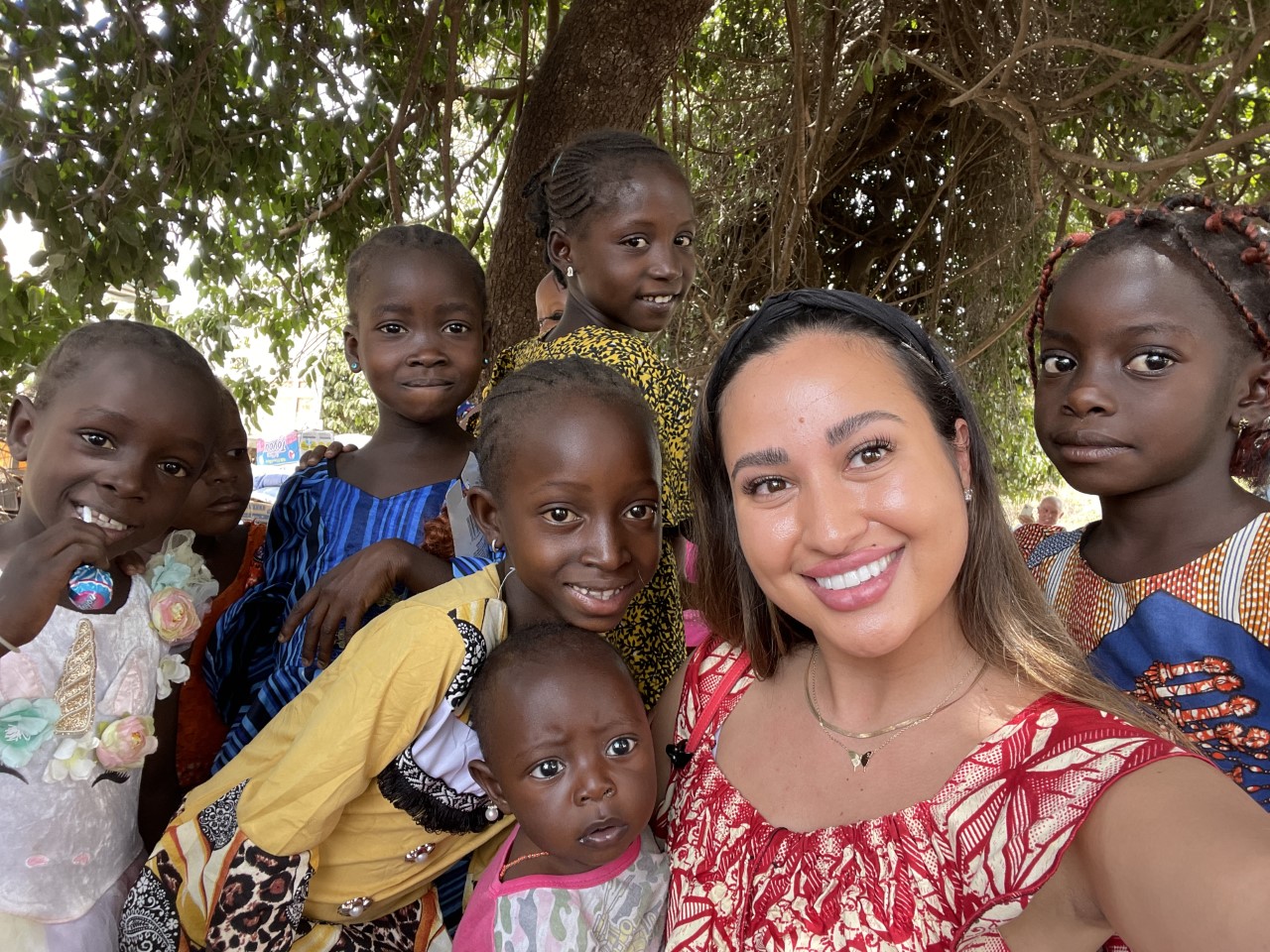
Picture 20, Stephanie with the African children
5. Lufei Xu is the son of Jun Xu. In 2013, he was a first-year medical student and went to Senegal with his father. The poverty and disease there shocked him. On the flight back to New York, he told Dr. Xu that he would definitely come back to help the people of Senegal. He graduated from residency training at the end of June this year. He studied Interventional Radiology, one of the minimally invasive radio-guided surgeries for six years, and mastered the latest techniques. He couldn’t wait to tell his father that he is eager to go back to Africa to help, but at present, he is still looking for a more suitable way. This is because the technology he has mastered is very advanced and we are not sure if Senegal has the necessary equipment to allow him to perform surgery. In the meanwhile, he also wants to help train Senegalese doctors.

Figure 21. In 2013, Lufei Xu and his father were in the isolated Jinjin Village.
6. Xinruo Guo, who went to Senegal for two consecutive years in 2018 and 2019 when she was a student at Tufts University. She was born in a wealthy family in Beijing. I asked her why she came to Africa She said that she was very lucky to study in the United States, where she felt civilization and happiness. In Africa, she experienced poverty and saw heroes. Now life has a meaning, and she will continue contributing to help Africa in the future. She is now in her third year of medical school at NYU, and decides she will return to Senegal to help African people after graduating.
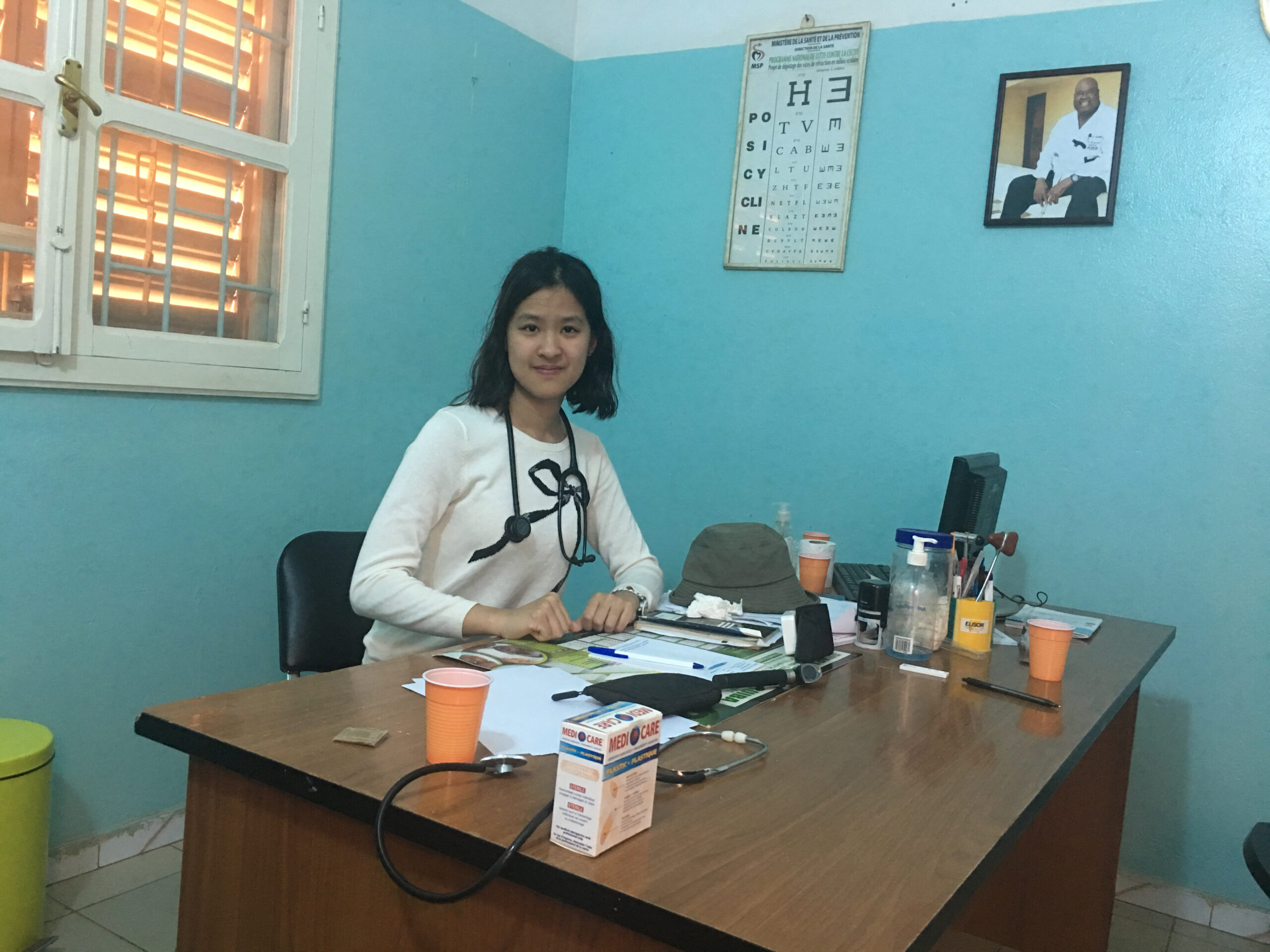
Picture 22, Xinruo Guo sat in Dr. Faye’s office remembering Dr. Faye’s touching deeds, and determined to help the poor like Dr. Faye did.
7. 2022 Chinese Youth
We had a total of five Chinese teenagers, four Chinese doctors and one Chinese entrepreneur to go to Africa this year. We used the strategy of children taught by other parents. From career choice to expressing love, each child saw the role model of adults as well as the needs of Africa. The fire of love has already been ignited in their hearts to change their life.

Figure 23, from left to right, Rachel Li, Mark Li, Kenneth Xu, Jason Yang, and Eric Wang
Rachel Li, who has been training in tennis professionally, told her mother that she might choose to study medicine to serve African people. Mark Li wants to practice medicine like his father. Kenneth Xu has entered West Point Military Academy and has been undergoing 6 weeks of devil training currently. After graduating from West Point Military Academy, he wants to become a lawyer or a politician. We wish him the best of luck. Jason Yang has persuaded several friends to contribute to Africa with him together next year, and he also hopes to go to medical school to better serve the African people. Eric Wang, who also wants to go to medical school, knows that the meaning of life is to help others. At present, Rachel, Mark and Jason have confirmed that they will go to Africa next year, and Eric is still waiting for the final decision.
This year, we brought five Chinese children to West Africa. After returning, four decided to go to medical school, one planned to study law, and the aforementioned Lufei Xu and Xinruo Guo both went to medical school. Do we feel that their career choices are a bit narrow? But we are so happy and relieved that they are willing to serve the African people and the poor like Dr. Faye did.
On March 20 this year, when our team returned to New York, the children said the same words as Lufei Xu, the son of Dr. Jun Xu, said ten years ago, “I will never ever, never ever complain again! In this lifetime, I will never complain again!” This is their true feeling after going to Africa, and their lives are like newly hatched eagles to finally spread their wings and take off after being tempered by wind, frost, rain and snow.
My dear readers, we do not have to worry about lack of food and clothing, but we often complain about the injustice of destiny; we have a car to drive, but we wish we had a private jet. Even a mother wolf can love their children, but it is not easy to guide children on the right path in life. A towering tree needs seeds, fertile soil and rain to grow. If we hope that children can bring the brilliance and happiness of life to others, our parents must lead the way and set an example. If one day the children tell their parents, “You are our role models!” This would be our greatest success in parenting.
We will go to Africa on March 16 next year. Many parents and children will join our team. In the past ten years, we have built a technical school there, which is free of tuition and includes meals and lodging. Three classes of students have graduated. We also support two small hospitals, where doctors are hired to serve patients year-round. Our short-term medical team goes to Africa to see thousands of patients for free every year, and sends food and vegetable oil to many villages. Next year we will have a surgical team for the first time to provide free surgery to patients who cannot it. We are grateful to World Weekly for reporting our deeds many times. We have changed many lives, and our teens have been reborn as new people. We also sincerely hope that you will join our team and live up to the call of this era to us, love and take action, my dear friend, only life can change life! Let’s be happy parents and volunteers, and grow with our children together! Please visit our webpage where you can see our plans and all the work for next year.
Author: Jun Xu, MD
Translator: Hui Liu, Vivan Hor
Editor: Hui Liu, Grace Guo
Date: October 24, 2022
